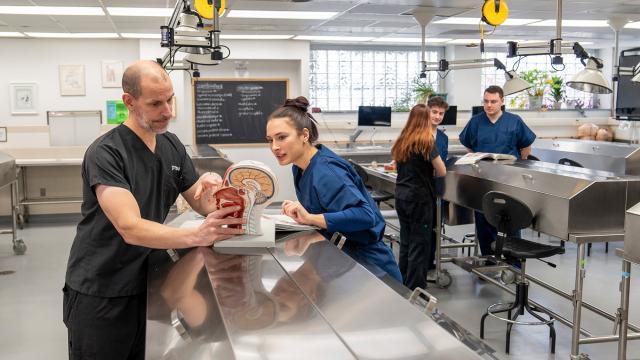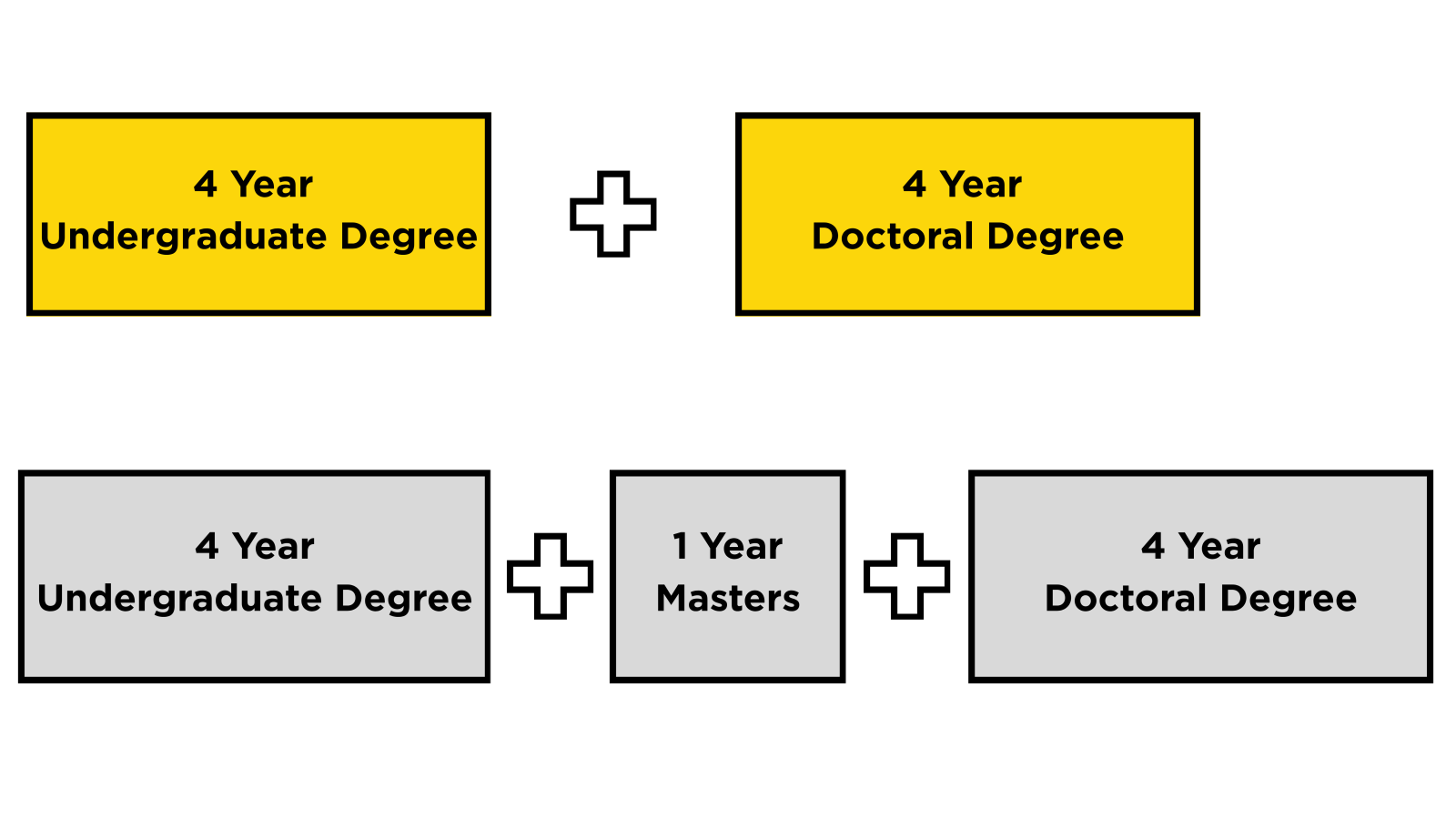

Building tomorrow's leaders in medicine.
Elevate your skills and channel your passion for helping others into a meaningful career as an osteopathic physician. The Doctor of Osteopathic Medicine (DO) program at D’Youville University College of Osteopathic Medicine (DYU-COM) is designed to provide the knowledge, skills, and experience needed to prepare for licensure and residency. With a foundation in osteopathic principles and an emphasis on whole-person care, DYU-COM prepares graduates to serve patients across diverse settings while addressing the future needs of healthcare. Students benefit from hands-on clinical training, strong mentorship, and a commitment to community health.
Why D'Youville
- Interprofessional Education: Learn alongside students from seven other healthcare programs in our state-of-the-art Simulation Center.
- Community-Based Training: Gain hands-on experience in real clinical settings across Western New York.
- Holistic Approach: Emphasize care for the whole person—mind, body, and spirit.
- Mission-Driven Learning: Prepare to serve and advocate for diverse, underserved communities.
- Collaborative Culture: Small class sizes and faculty mentorship ensure personal attention and growth.
- Cutting-Edge Facilities: Train with advanced technology in a modern health sciences campus.
- Pathways to Leadership: Develop the skills to lead, innovate, and improve healthcare outcomes.
- $239,200Median National Annual Wage in 2024
- 3%National Job Growth Projected by 2034 (Average)
- ~45,000Residency positions offered in the 2024 Match (NRMP)
- 2,000+Clinical Hours
Pathway Options
We strongly encourage students to prepare for the Doctor of Osteopathic Medicine (DO) degree by enrolling into one of the following Pre-Medicine Pathways to best align yourself for success with the intensive curricular requirements and ensure prerequisite courses are completed prior to applying to medical school:
- Biochemistry (BS)
- Biomedical Sciences (MS)
There are two tracks recommended to set yourself up for applying to the Osteopathic Medicine (DO) program. These options allow completion of the undergraduate and doctoral program in 8-9 years.
Undergrad Advisory Track:
There is currently no early assurance pathway available for direct entry into the Osteopathic Medicine (DO) program. We encourage students that are interested in pursuing medical school to enrolled in the Biochemistry (BS) program.
Masters Advisory Track:
Students who need more time to improve MCAT scores and develop a stronger health sciences foundation are encouraged to enroll in the Masters of Biomedical Sciences (MS) program prior to apply for the Osteopathic Medicine (DO) program.

Careers
Our Pre-Medicine Pathway prepares students with the foundational knowledge and clinical understanding needed to pursue a doctoral degree in medicine, such as the Doctor of Osteopathic Medicine (DO).
A Doctor of Osteopathic Medicine’s Role
The role of a Doctor of Osteopathic Medicine (DO) has evolved significantly over time. Today’s osteopathic physicians are fully licensed medical professionals who diagnose, treat, and prevent illness while emphasizing a whole-person approach to care. They focus not only on a patient’s symptoms but also on how lifestyle, environment, and mental health influence overall well-being.
In addition to practicing in traditional hospitals and clinics, DOs can be found in community health centers, research institutions, the military, government agencies, and academic medicine. They bring a unique philosophy to healthcare that blends evidence-based medicine with a strong focus on preventive care and the body’s natural ability to heal itself.
Modern DOs serve as integral members of the healthcare team, providing compassionate, patient-centered care. They use all the tools of modern medicine—prescribing medications, performing surgery, and utilizing advanced technology—while also applying their hands-on training in osteopathic manipulative treatment (OMT) to support recovery, manage pain, and promote optimal function.
Osteopathic physicians also play a critical role in shaping healthcare policy, advancing medical research, and improving access to care—especially in underserved communities. Their holistic approach and broad training prepare them to serve wherever patients need them most, from rural family practices to cutting-edge specialty centers.
Industries & Settings
Doctors of Osteopathic Medicine (DOs) practice in a wide range of healthcare environments, serving patients across diverse specialties and communities. Their holistic approach and broad medical training allow them to adapt to many settings, including:
Primary Care Physicians – Often serving as the first point of contact for patients, DOs in family medicine, internal medicine, and pediatrics provide comprehensive, continuous care focused on prevention, wellness, and the treatment of both acute and chronic conditions.
Specialty Physicians – Many DOs pursue advanced training in specialties such as surgery, cardiology, emergency medicine, obstetrics and gynecology, psychiatry, and orthopedics, integrating osteopathic principles into their specialized patient care.
Hospital & Clinical Settings – DOs work in hospitals, outpatient clinics, and academic medical centers as part of interprofessional healthcare teams. They diagnose, treat, and manage patients, consult with specialists, and contribute to clinical education and leadership.
Public Health & Community Medicine – Some DOs serve in community health centers, government agencies, and nonprofit organizations, addressing population health needs, advocating for health equity, and shaping public health policies.
Research & Academia – DOs contribute to advancing medical knowledge through research, teaching, and academic leadership in medical schools, helping train the next generation of healthcare professionals.
Military & Global Medicine – Many DOs serve in the U.S. Armed Forces or international organizations, providing medical care in diverse and often underserved environments around the world.
Job Outlook
Doctors of Osteopathic Medicine (DOs) are in high demand and enjoy strong career stability and compensation. According to the U.S. Bureau of Labor Statistics, physicians and surgeons earned a median annual wage exceeding $239,000 in May 2023.
The demand for DOs continues to grow as the healthcare system increasingly values whole-person, preventive, and community-based care—core tenets of osteopathic medicine.
For more information about the job outlook for physicians, visit the U.S. Bureau of Labor Statistics website.
Contact Admissions
